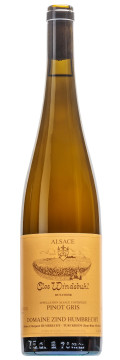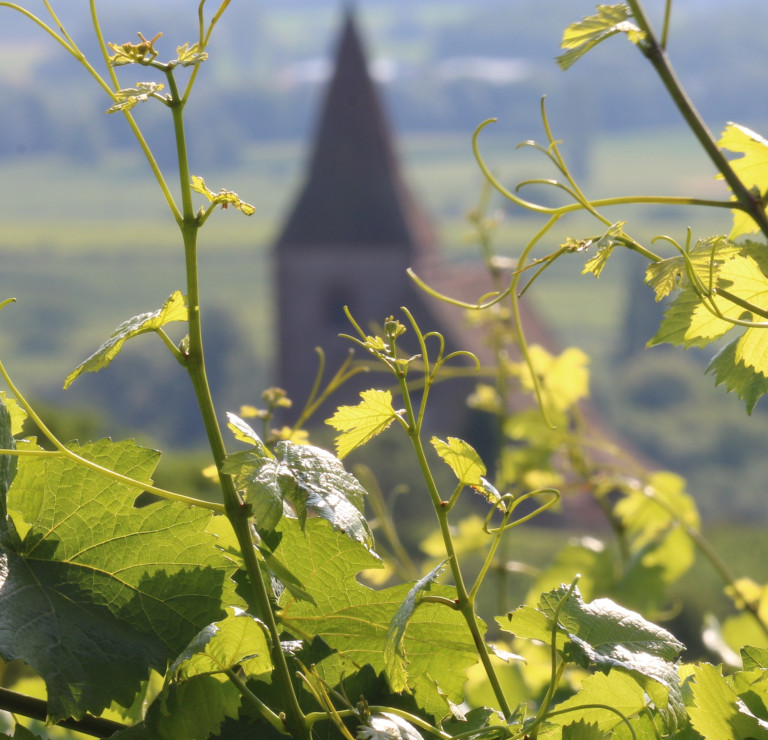
Technical presentation
| Bottling : | September 2003 |
|---|---|
| Acquired alcohol : | 15.1° |
| Residual sugar : | 14.0 g/l |
| Total acidity : | 4.2 g/l H2SO4 (6.4 g/l Acide Tartrique) |
| pH : | 3.6 |
| Yield : | 45 hl/ha |
| Average age of vines : | 25 years |
| Terroir : | Clos Windsbuhl |
| Sweetness index : | 2 |
| Soil : | Muschelkalk calcareous, South facing |
Description of the wine Pinot Gris Clos Windsbuhl 2002
The Clos Windsbuhl is located in a cooler part of Alsace, on a rocky muschelkalk soil (calcareous soil), capable of producing wines with tremendous finesse and intense aromas. Just like 2001, the Clos Windsbuhl pinot-gris developed lots of noble rot. Unlike 2001, we decided to select in priority the healthy clusters (which produced this wine), and harvested the botrytis-affected clusters later in order to produce a Vendange Tardive. This wine was able to ferment in 2 months, which is a short time in this vintage.

Tasting notes
01/2004 : At the opposite of the two previous wines, the Clos Windsbuhl shows strong mineral character on the nose and needs crucially to be decanted before serving at this young age. The absence of noble rot and good acidity give a powerful structure to this wine, the little residual sweetness and high alcohol makes the finish taste quite dry and mineral.

The Clos Windsbuhl of Hunawihr
The altitude of the vineyard coupled with Hunawihr’s tardy climate means that the Clos Windsbuhl is often one of the last of our vineyards to be harvested. This explains the aromatic quality of the Clos’ wines and the consistent balance of acidity, a guarantee of good ageing. Although often harvested late, the Windsbuhl grapes are only rarely botryitized, doubtless due to the altitude of the vineyard, but nevertheless often reach high levels of maturity.